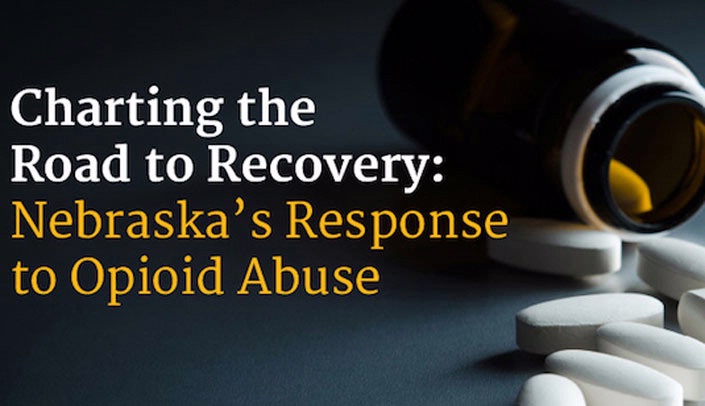According to the U.S. Department of Health & Human Services, the nation is in an unprecedented opioid epidemic.
In 2014, more people died from drug overdoses than in any other year with the majority of those overdose deaths involving an opioid. Since 1999, the rate of overdose deaths involving opioids (prescription opioid pain relievers and heroin) nearly quadrupled, and the Center for Disease Control and Prevention estimates that more than 165,000 people have died from prescription opioid overdoses.
In recognition of this growing concern, the Nebraska Attorney General, UNMC, the U.S. Attorney and the Nebraska Department of Health and Human Services are sponsoring a daylong conference to find a collaborative, multidisciplinary approach to prevent and treat opioid abuse in Nebraska.
The summit, which runs from 7:30 a.m. to 4:30 p.m. on Oct. 14 in the Michael F. Sorrell Center for Health Science Education on the UNMC campus in Omaha, is intended for medical professionals, law enforcement professionals, state officials, professionals working in the community, and social service agents. There is no fee to attend, but pre-registration is required. Register by the Oct. 7 deadline here.
“Heroin and prescription drug abuse have devastating effects on the public health and safety of communities across America,” said Nebraska Attorney General Doug Peterson. “Nebraska has an opportunity to join forces and construct preventative measures against the scourge occurring in so many other states.”
“UNMC is proud to be part of this important conversation,” said UNMC Chancellor Jeffrey P. Gold, M.D. “This is a public health issue best addressed through statewide partnerships and honest dialogue in how we treat and prevent prescription and illicit opioid abuse. Boosting awareness of opioid use and abuse is one of the first steps.”
The Oct. 14 summit, titled “Charting the Road to Recovery: Nebraska’s Response to Opioid Abuse,” will focus on prevention, treatment and law enforcement through direct collaboration with the public health, medical and law enforcement communities in Nebraska.
“The consequences of opioid abuse can be devastating to individuals, families and communities,” said Courtney Phillips, chief executive officer of DHHS. “DHHS is a committed partner in the areas of prevention, treatment and law enforcement, and we will continue working with our partners to reduce the number of Nebraskans who are addicted to opioids.”
Continuing education credit is available. Visit the website for details, including the conference agenda.
